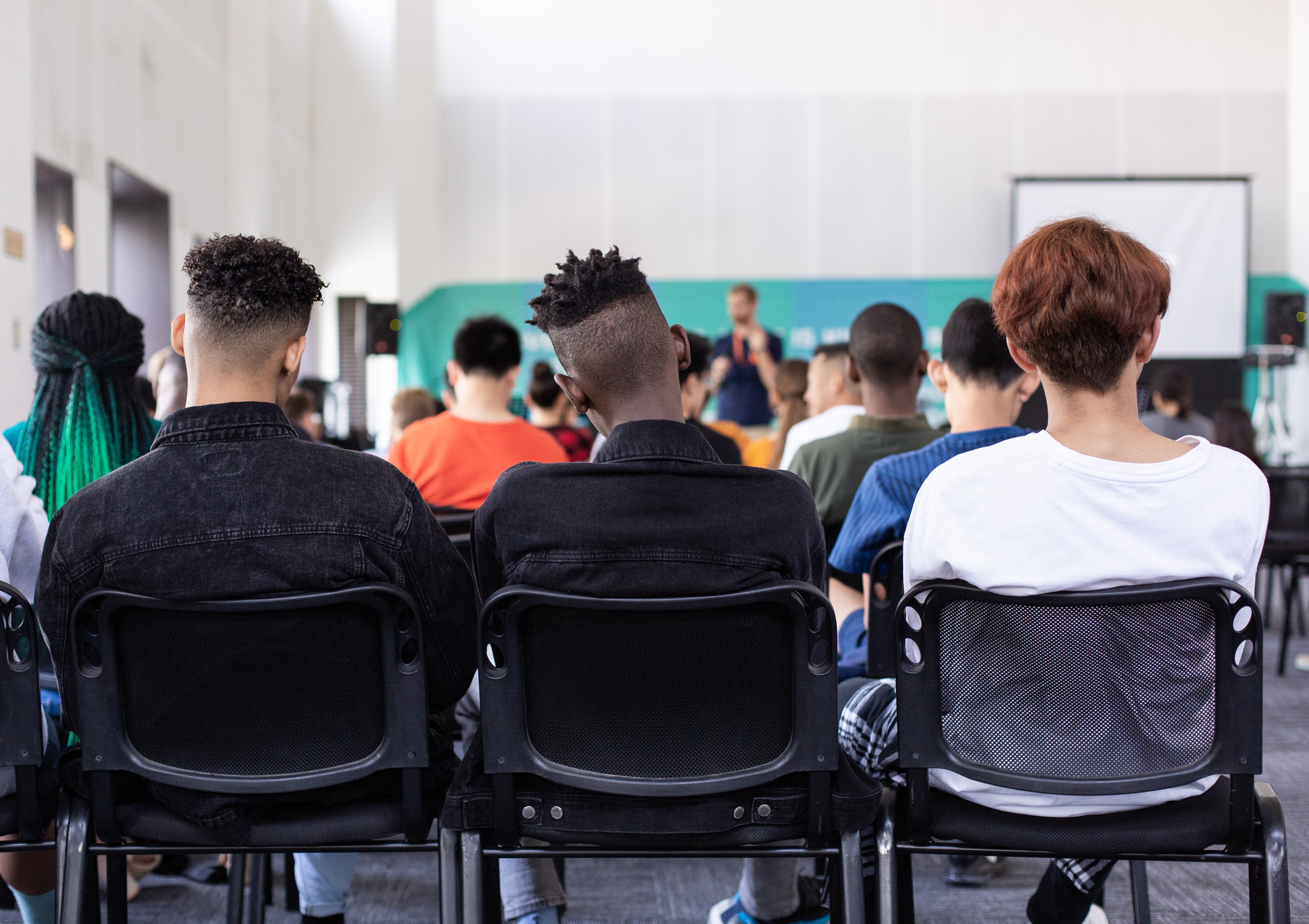
Credit: The boys in the back by S. Bayle and licensed for free use by Unsplash
Considering Vygotsky in Relation to Course Design
July 25th, 2016
Many of our online courses feature discussion activities and group work, but could they be designed to be more beneficial to students? Yep. Try adding a little Vygotskian theory to your diet.
Lev Vygotsky was a Russian cognitive theorist who began developing some big ideas (sociocultural theory) but then died young. Still, educators highly value his ideas about the ways social surroundings within learning environments help us learn, particularly when those environments include skilled partners -- which may mean the instructor, but which may also be peers. The key is that guided, or social learning can lead to better understanding and performance than can working alone. Also, important is a consideration of the role of the instructor: source of knowledge or role model? Or both?
Consider the following, from Sociocultural Approaches to Learning and Development: A Vygotskian Framework by Vera John-Steiner ad Holbrook Mahn of the University of New Mexico:
“Divergent classrooms can become learning communities -- communities in which each participant makes significant contributions to the emergent understandings of all members, despite having unequal knowledge concerning the topic under study" (Palincsar, Brown, & Campione, 1993, p. 43). [Brown and her colleagues] examine the role of "reciprocal teaching," an approach in which "students and teachers take turns leading discussions about shared text" (p. 43), to see whether structured dialogues foster a learning community. The teachers in these studies have a changing role. They share with the students the well-defined tasks of questioning, clarifying, summarizing, and predicting in order to construct text-based knowledge. These studies exemplify two themes in sociocultural approaches to … learning and teaching -- (1) the implementation of an educational program that allows for or encourages the co-construction of knowledge and (2) the analysis of this learning that contributes to our understanding of … learning from a sociocultural perspective. Collaborative learning plays an increasing role in these, as well as many other innovative [learning environments].
To learn more, check out these links and articles:
Simply Psychology’s page about Lev Vygotsky
Tag Cloud
You can quickly search our news articles by topic using our tag cloud. Click on a term to see a list of related articles.